So the new BMW 3-series (specifically, the 320d Sport) is the Autocar road testers’ idea of a five-star car.
Five stars is a very big deal around here. It’s the highest accolade our we-drive-everything testers can bestow on a car, and they are extremely careful not to spray it about. The last five-star verdict went to the Ferrari 458 Italia in 2010. Which suggests a comparison featuring the new BMW 320d Sport and three similarly priced rivals might be a bit of an anti-climax. How can a car with a near-perfect score fail to administer a brisk coup de grâce to anything else at the price?
Well, easily, we believe. It’s a matter of priorities and emphases. The 320d may be the best and most economical diesel sports saloon going, but who’s to say the £30,000 buyer might not turn up a faster, roomier, better-equipped proposition that’s more appealing on the eye and better value for money? No reason at all, we reckon. So as a means of showing just how diverse is the selection available to the buyer of practical cars with £30,000 to spend we assembled some proven favourites to give the 320d Sport the toughest possible test.
Image meets reality
Premium cars are always vulnerable on price, because a hefty component of the bottom line is ‘image’, a mixture of heritage, reputation and expectation – not metal, rubber and glass. So how could we give the BMW a hard time on that score?
How about matching it with a top-end, £25,000 Volkswagen Golf GTD? It’s a more mainstream car, with a near-identical power-to-weight ratio, whose quality standards are just as good. Its £5000 lower price would also theoretically allow its buyer to invest in extra kit. Its 40cm shorter overall length should give it an agility advantage, too.
For those with a serious metal-for-the-money fetish, we added another mainstreamer of proven ability and character: the Skoda Superb 2.0 TDI Elegance estate. It costs £26,015 before gadgets, because big Skodas are even less ‘premium’ than VWs, they include much more hardware. Our Superb has a paddle-shift gearbox – plus the highest-output 168bhp diesel and an elegant suite of leather upholstery, colour touchscreen sat-nav, tyre pressure monitors and glass roof. Despite being 20cm longer than the 3-series and 40cm longer than the Golf, it weighs less than 10kg more than the 320d, so its performance figures (137mph flat out, 8.9sec for the 0-60mph) aren’t far behind the rest of the cars tested here.
One of the most sought-after cars of the moment, a new Range Rover Evoque, is here because it’s good competition for the BMW on the grounds of desirability. Its eye-popping styling and high seating make it completely different from a four-door saloon. Our budget allowed us a £27,955 two-wheel-drive eD4 Pure version, with the lower-power 148bhp, 2.2-litre diesel as standard and a five-speed gearbox. Still, this much-praised machine would surely rival the 3-series for luxury, impact, eye appeal and desirability.

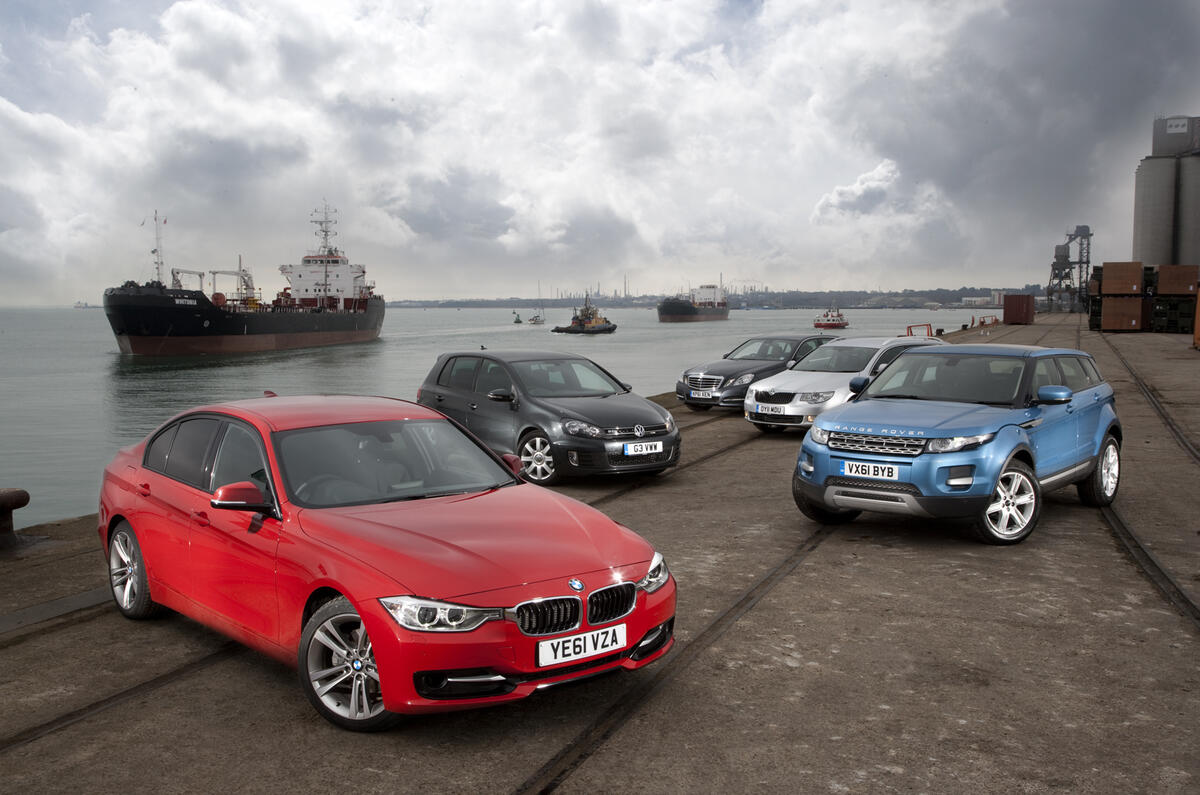
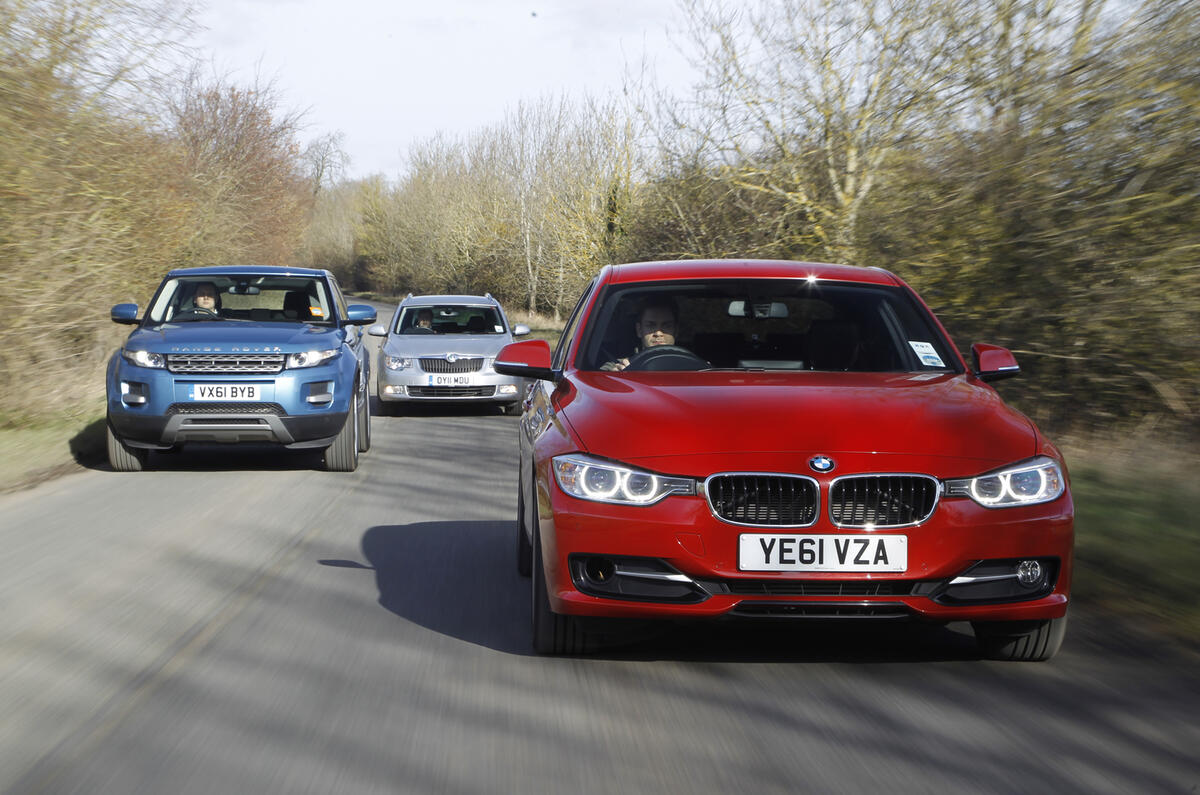
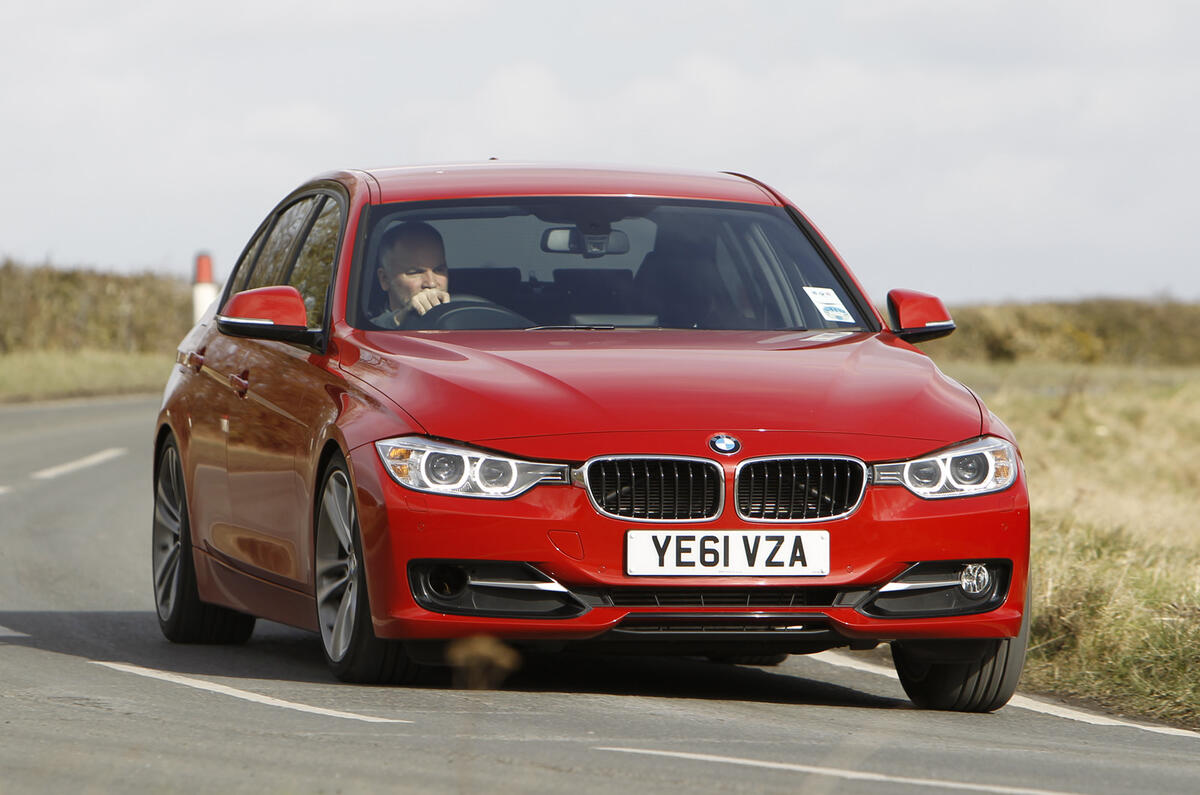
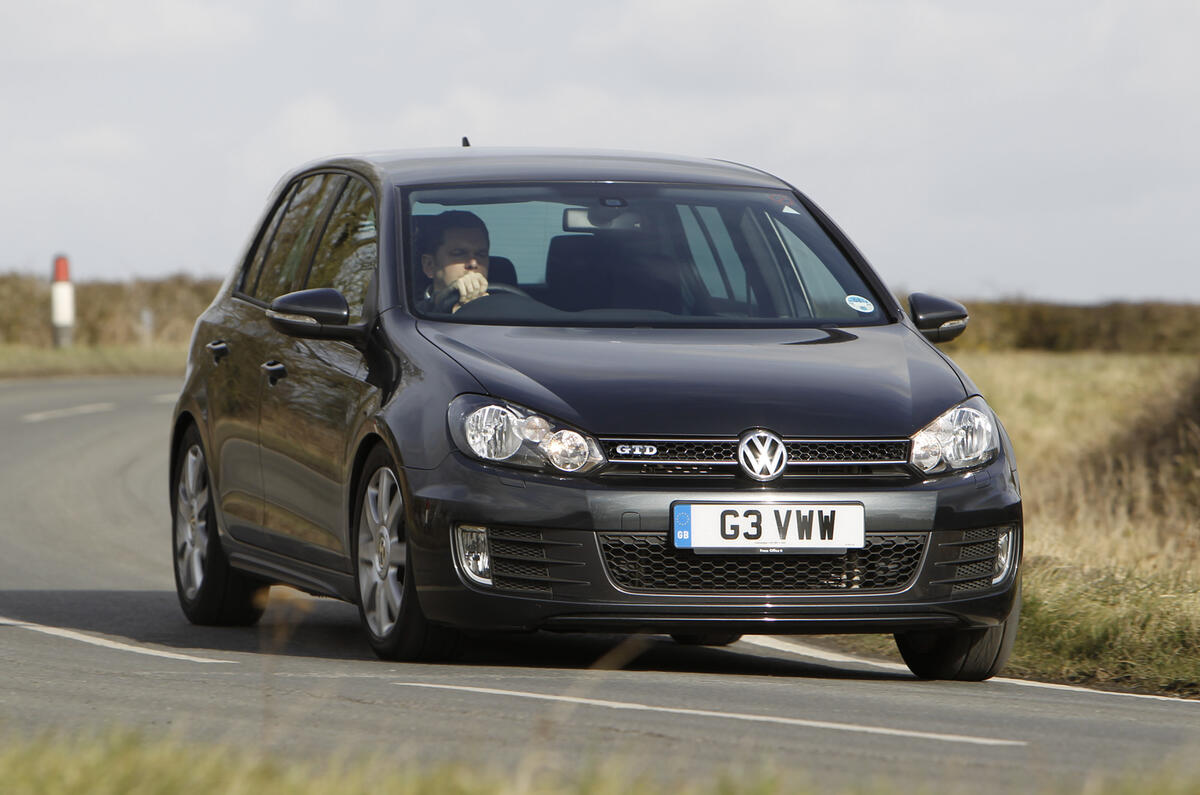
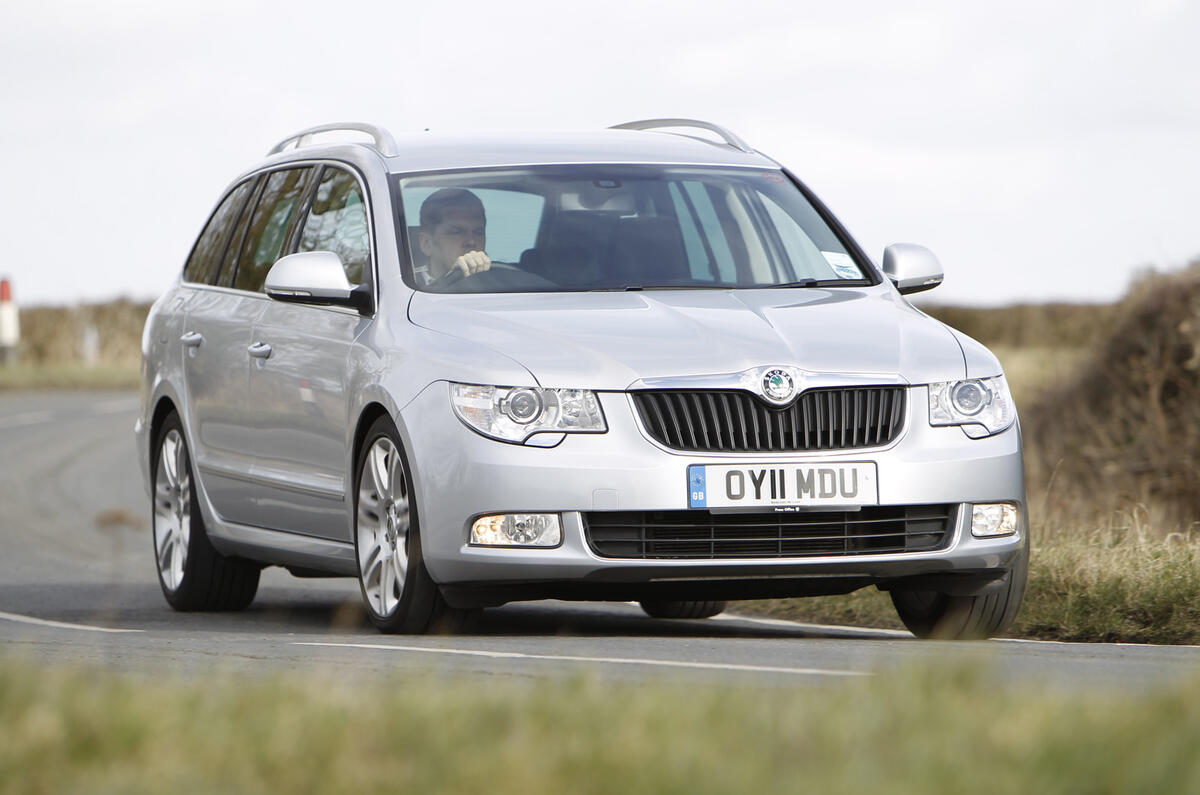


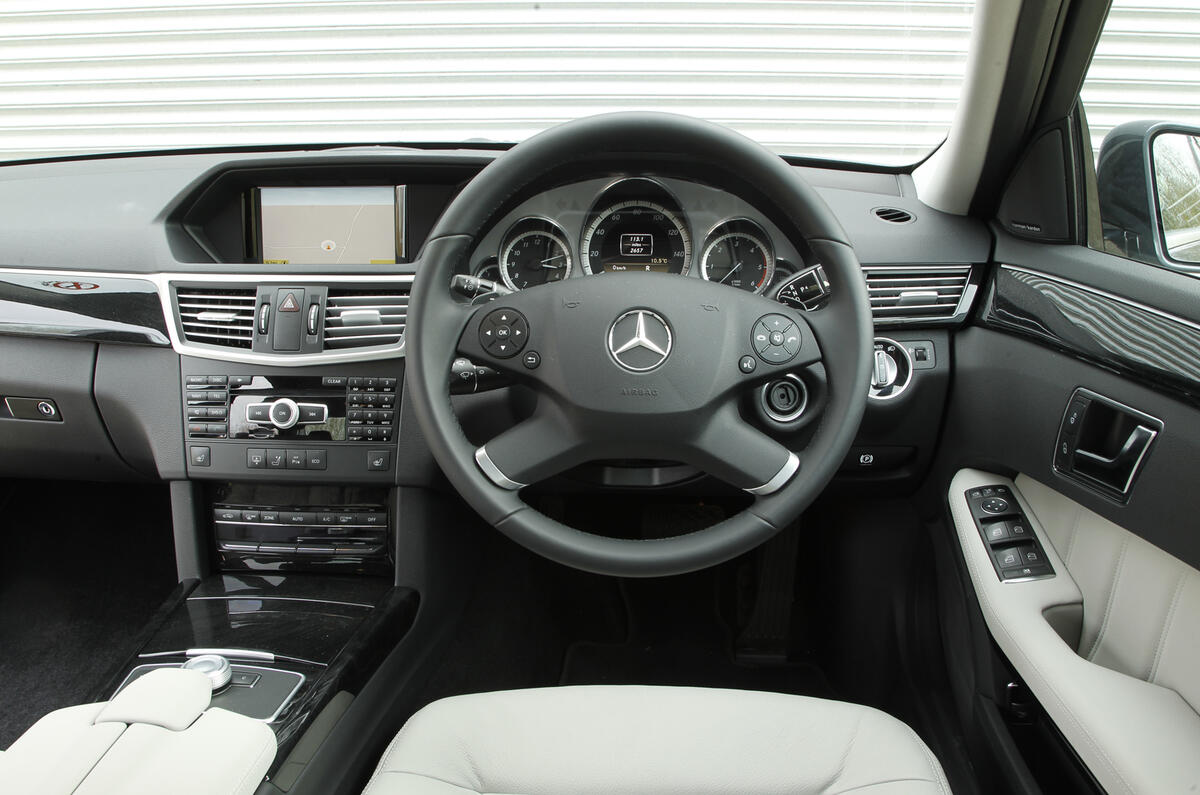

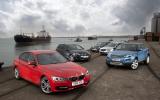















Join the debate
Add your comment
I should add...
I should add that the clanking, rattling 320d (even with nearly every worthwhile option fitted was discounted down to £28k - not £38k(LOL!) as someone mentioned earlier) - probably because the roads are clogged up with these rep-mobiles, whilst the Golf 160 was just £25k (only 3k cheaper). It's much harder to get a discount on a Golf (although that may be possible now, as new model is due), and there's good reason for that! What amazes me, is how Steve Cropley can describe the Golf as mainstream against the 3 series, when the 3 series is undoutably one of the most mainstream cars on the road today! I've also heard loads of people say that the 3 series is becoming uglier by the day and the interior is beginning to look cheap - not hard to disagree. To sum up, check out used car prices - 320Ds go for just £14k after just 2 years (speaks volumes). It's a reasonable car, no doubt, but it's nearly always chosen by sad, deluded "Hyacinth Buckets", "Sun glasses make me look cool/Arms on windows...." LOL!
Re: The best car in the (real) world
Everyone knows that a quality 5 seater hatch is the best car in "the real world". I've driven both the 3 series and Golf, and the Golf wins hands down by any measure. I compared a fully spec'd 320 with a TSI160 and the Golf's higher quality interior, better gadgets, smoother and much faster ride together with superb practicality was a no brainer. It just felt a much nicer, more complete package than the BMW when spending my own hard earned money. Steve Cropley's ridiculas comment where he unbeliveably rules the Golf out on the basis of "For me, the Golf and Superb are cheaper cars; you can buy desirable versions of both for less money" (what sense does that make in relation to this article) just shows that he's only interested in the badge, and not the best car in the real world!
Re: The best car in the (real) world
I am not sure that Autocar are actually living in the real world. In their world maybe everyone would be driving a BMW 3 series - and I don't doubt this is an excellent car. But I find it hard to believe that in the real world the 3 series would be in most peoples budget - there will be some that have the money and some that get it as a Company Car but probably most will gone into debt to buy it...